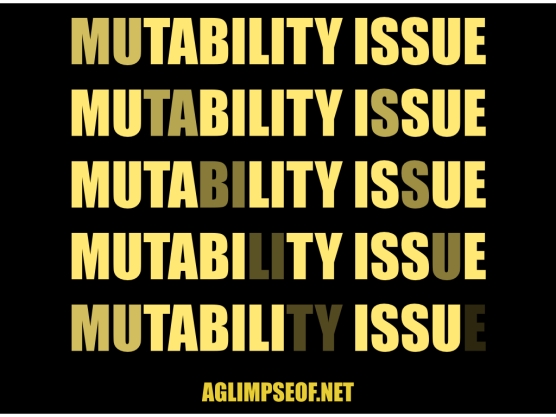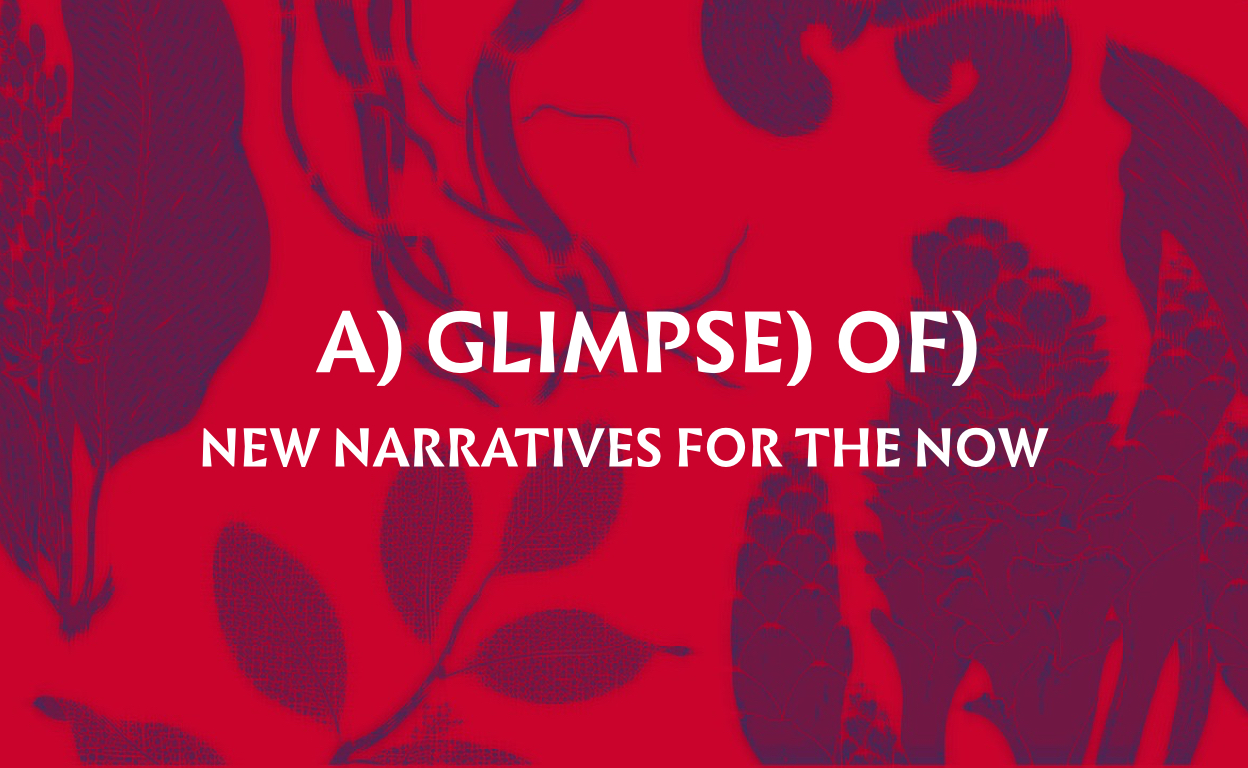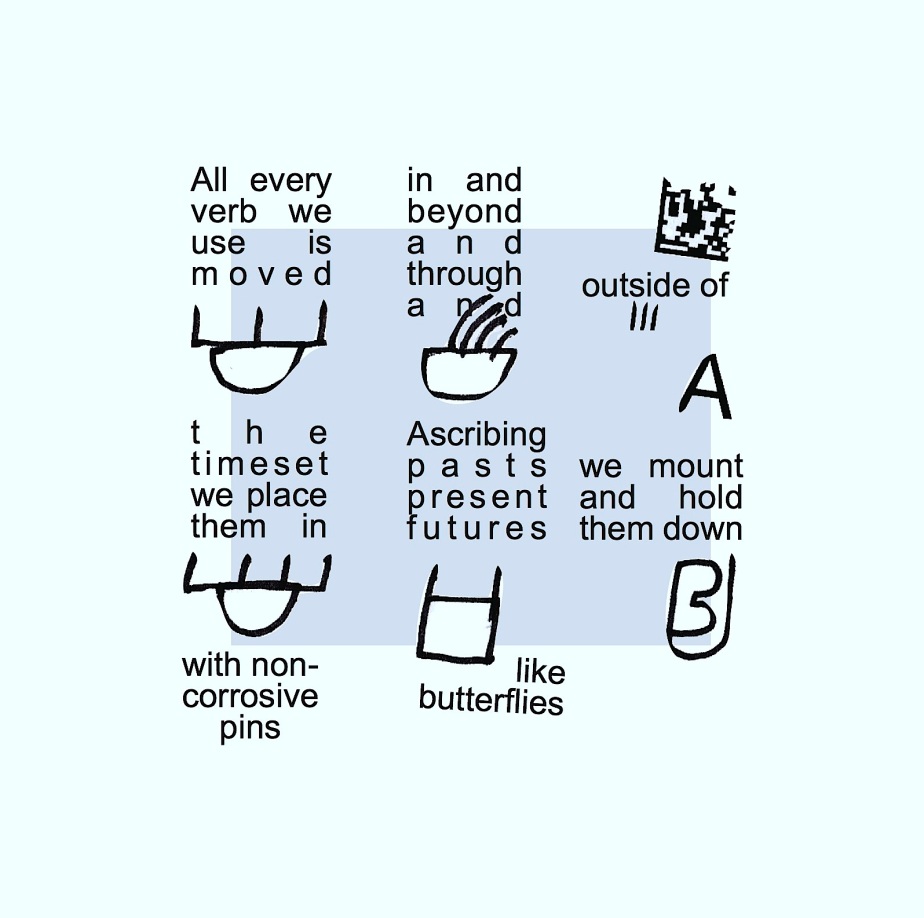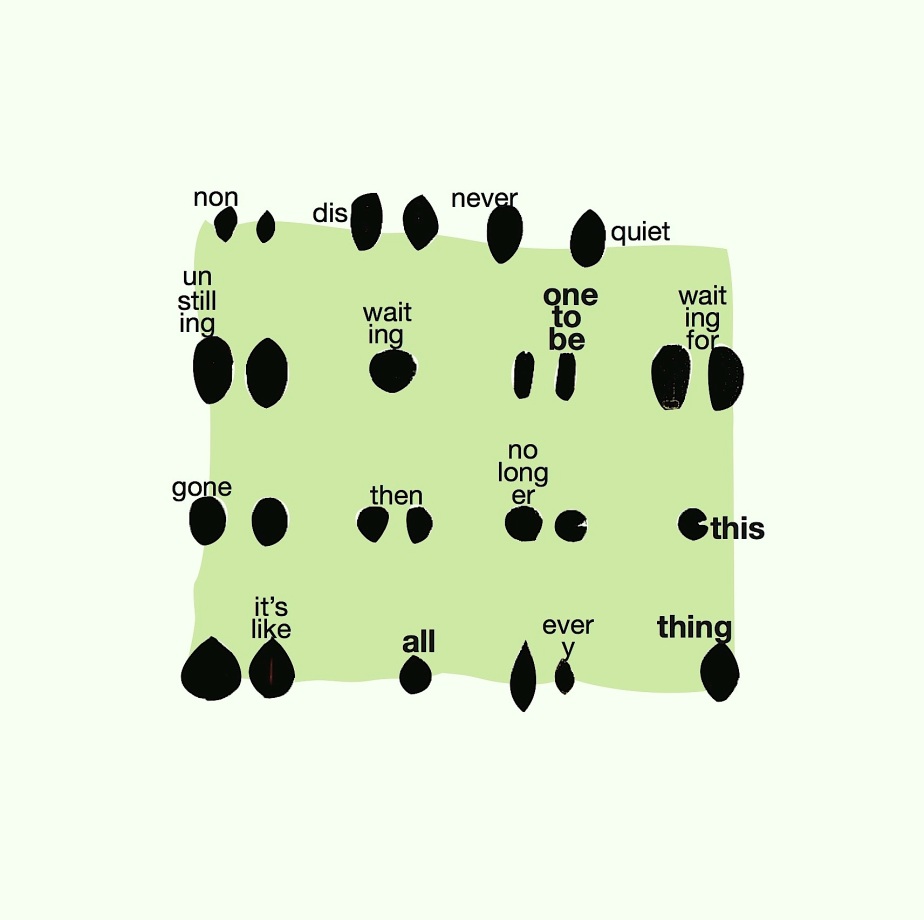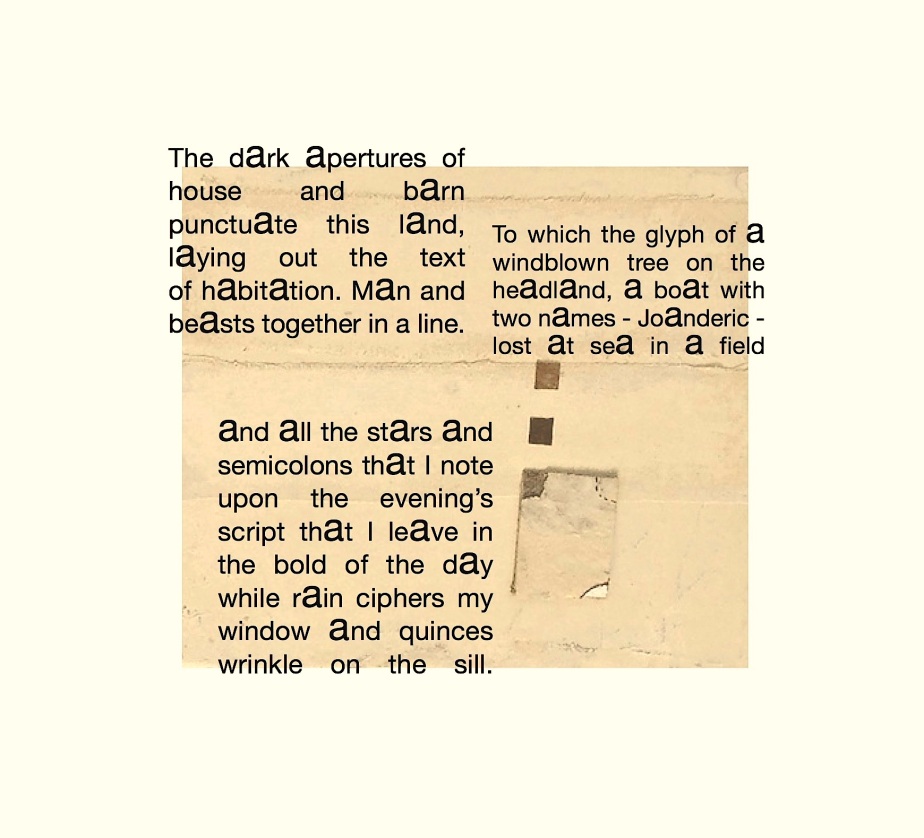PORTRAIT OF THE ARTIST AS A YOUNG ARTIST
1.
When I used to live in the city I had a balcony on the twentieth floor. I discovered on a balcony diagonally above me there sometimes appeared, among the potted plants, a gray dog with a white M for eyebrows, and I would whistle up to him and whisper, “Hey, hey.” He would stick his long snout, then his whole face, through the railing and his ears would flop in the wind and he would glance around at the street, the sky, sometimes at me, and smile in the sunlight. I thought, “Hey, dog, are you having fun?” His gray fur matched perfectly the color of the stones of the building. Sometimes birds flew so close I thought he could bite them if he wanted; we really were way up in the air.
One morning I was out there again, and I noticed this dog had gotten on the ledge. I whistled, he glanced at me, he glanced at the street. Before I could even wonder he had leaped to his death.
2.
The egoist’s sonnet: “I am, I am, I am, Iamb, Iamb.”
3.
People like to say there was something in the water of America. There was talk of social diseases. An old local politician was revealed to have sat in his seat in the governmental assemblies for thirty years without speaking out once. He was shy.
Zimbardo’s studies on shyness show, from their perspective, doctors and psychologists and theorists, who were not shy, prodding and yelling at shy test subjects, verbally beating them into effeminate submission. Nearly 1 out of 2 American adults in 1975 confessed, in an anonymous study, to being shy; at first this was classed as a neurosis, an anxiety, a cognitive problem caused by some insidious socio-biological decline in Americans, especially American men. What followed were humiliating studies in which shy people were forced into parties and scrutinized, much like they already suspect they are being scrutinized.
The researchers suspected that people were overestimating their shyness; maybe not half but only 1% of men are actually shy, they postulated. They sought out the 1% who were so shy they could not leave the house, who had driven themselves crazy. This 1% was easy to spot in a crowd.
The researchers studied shy children and decided that adult shyness is a case of arrested development, cowardliness. Then the scientists compiled their evidence and began to fear that actually 100% of all people have traces of shyness in them; they themselves noted, at a scientists’ convention, moments of their own unease, when waiting in line at the coffee station, during silences in conversation with those obviously ill-matched for conversation (whether due to differences in intelligence or specialization). They began to fear that the disease was spreading, started spending nights partying (one party lasted 72 hours straight), laughing and dancing just to prove their worth, their charms, their wiles.
4.
A wall on which someone has written, “All walls must fall.”
5.
Marc, an amateur director, got people who weren’t actors together to make a film. The script was full of wine-party scenes, full of cigarettes as props, since Marc didn’t really know how to write yet; the scenes were really just exact replicas of real life. (Really the script was just a bunch of people standing around talking about how they felt.) But even though the “actors” were doing what they normally do anyway, they were tense and self-conscious, so Marc plied them with wine. The “actors” got drunk for real and started getting emotional, as though the lines and the drama of the script were real. Some related to their characters in powerful, inexplicable ways. Some wept. Some really did fall in love that night. Most, by the end, recalled something repressed, yet significant, from childhood and made some casual promises to devote their lives to art.
6.
“I’ve gotten better at reading poetry. I’ve gotten to the point where I can read a series of random letters, even foreign glyphs, and see a picture, grasp a meaning. The best poets can read an oriental rug.” Marc was extremely high and enamored by the rug he was sitting on. It looked, in terms of a feeling, exactly like Matisse’s red studio.
“To accurately plant an image in the reader’s mind, you must express things a tad inaccurately. In order for the reader, for example, to see Gregor Samsa as a man, the reader must first see him as a bug. In order to convey that something was merely okay, one must necessarily say, ‘It was phenomenal; no, it was deplorable.’ If the reader is imagining a beautiful woman, the writer behind the curtain is no doubt describing, in fact, in the most realistic terms possible, the coloration and softness of the skin of a peach. If the writer says ‘one thousand years,’ the reader perceives one pregnant second. In order for a reader, for example, to envision a copper-colored room, one must describe it as a rose-colored room. This problem concerned Duchamp.”
—Marc, On Imagination
“A small discrepancy in data of one or two units out of millions, accreted over a million years, becomes a big discrepancy.”
—Marc, On Time
“There are some people with fundamentally disoriented minds. They’re the ones who do not equate north with up and south with down. They will say they are going ‘down to New York,’ or going ‘up to Miami.’ I do not trust such people. Really though, you can say you’re going ‘down’ to Miami but you can’t say you’re going ‘up’ to New York. If you believe that you’re standing up straight on the spherical earth then you are always at a point where going anywhere means going down.”
—Marc, On Space
“What is it to read poetry? True poetry gives you a feeling even if in a foreign language, even if language-poetry, even if concrete poetry letters scattered across the page. Read the pattern on the rug and get that poetical feeling. La lingua ch’io parlai fu tutta spenta / innanzi che a l’ovra inconsummabile / fosse la gente di Nembròt attenta.”
7.
Marc was in the hospital, and all he wanted to do was listen to gameshows and P. J. O’Rourke on the radio. I thought often about the dog on the ledge; in my mind there was a film reel constantly replaying the image of a dog falling head-first, inch by inch, down the facade of a building in grayscale.
Marc had cancer. I sat by his bed: an attempt to comfort my friend by listing all the names I knew of great men who also died of cancer.
“Matisse had cancer of the stomach.”
“Is that so…”
“Rilke, I believe, succumbed to leukemia.”
“Mmm.”
“Napoleon, too—a great man—again, stomach cancer.”
Jenny Wu lives and teaches in St. Louis. Her recent stories appear or are forthcoming in The Ogilvie, Dream Pop Journal, Pour Vida Zine, and elsewhere.
